On the afternoon of September 30, 2024, the 28th session of the "Chinese Music Lecture" was held at the Art Development Research Center of the Chinese National Orchestra Society. Guzheng performer, educator, and Professor Zhou Wang from the Central Conservatory of Music gave a lecture on "Inheriting Tradition and Innovating with Intent - My Artistic View on Guzheng Music". Wu Yuxia, President of the Chinese National Orchestra Society, Song Yang, Deputy Secretary General, Diao Yan, Executive Editor in Chief of the "Chinese Folk Music" newspaper, and representatives of art schools, performance groups, and society staff stationed in Beijing were present to listen.
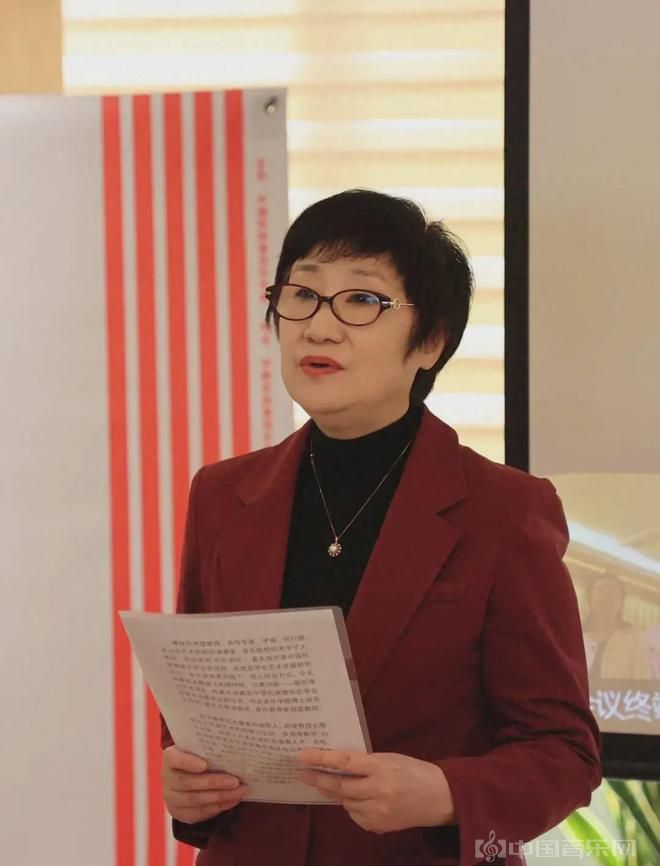
President Wu Yuxia presides over the "Huale Lecture Hall" and delivers a speech
In her speech, President Wu Yuxia said that as an important leader in the art of Qin zither, Professor Zhou Wang has long been committed to the dissemination and promotion of national art. Over the past 40 years of his performance and teaching, he has cultivated many outstanding talents in playing Guzheng. Young outstanding performers such as Su Chang and Cheng Haoru have won awards in major domestic competitions and are also outstanding performers active on the art stage. Since 2013, Professor Zhou has repeatedly won the Excellent Guidance Teacher Award for the "BOB Top notch Innovative Talents" project of the Central Conservatory of Music, as well as the Excellent Guidance Teacher Award for ethnic instrumental music exhibitions such as Golden Bell, Wenhua, CCTV, etc. In 2018, he was awarded the title of Outstanding Folk Music Performer in the "Xinyi Cup", and his achievements have been included in classics such as the "Dictionary of Chinese Musicians", "Chinese Celebrity Record", and "Chinese Music Encyclopedia".
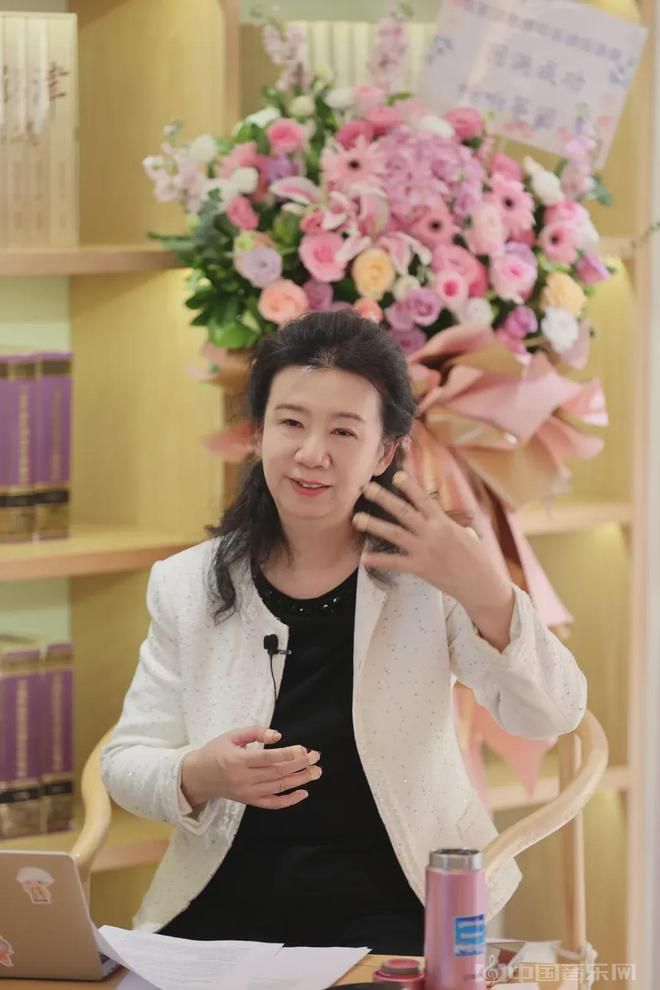
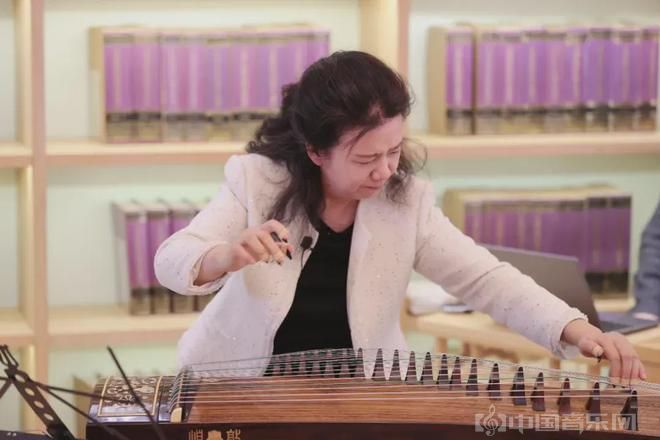
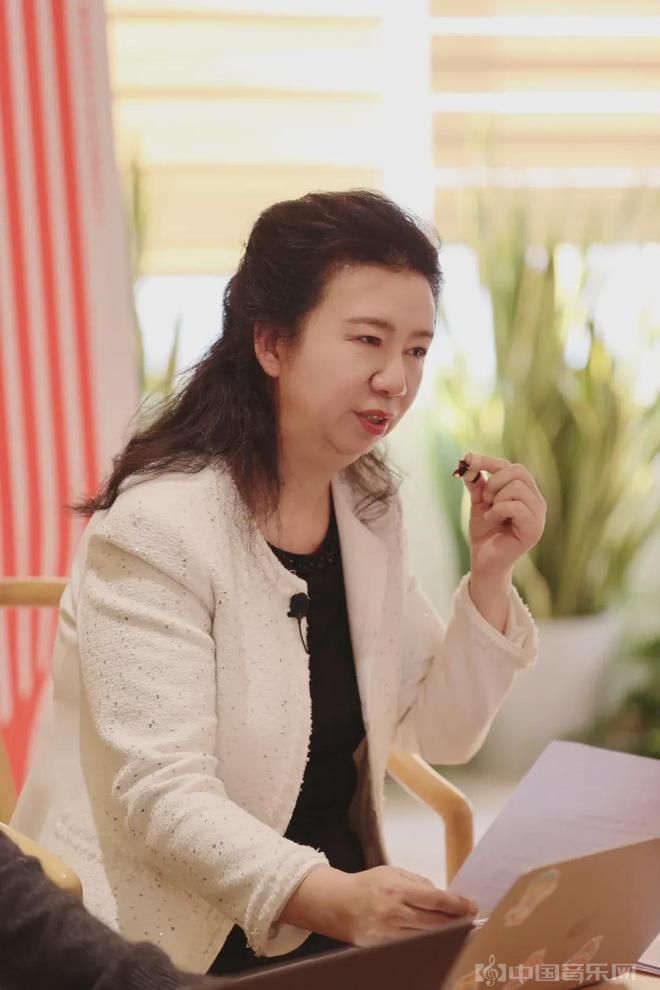
Professor Zhou Wang's sincere speech explains her reverence for excellent traditional culture and her profound artistic accumulation. She shares her long-term experience and insights in teaching, learning, performing, and researching Chinese guzheng art, especially her exploration of the art of guzheng music through her works, which has benefited us greatly. In the 1980s, Professor Zhou Wang's song "Qin Sang Qu" added brightness to the art stage both domestically and internationally. This unique zheng song, which combines folk tradition and artistic significance, left a deep impression on the industry and accumulated rich stage experience for her to enter professional music teaching in vocational colleges. She has her own unique understanding and musical expression of maintaining the characteristics of Qin zheng, Qin rhyme, and Qin style. The published "Qin Sang Qu" has become a model for studying Shaanxi zheng music. She has spared no effort to promote the art of Qin zither for decades, recording and releasing dozens of Qin zither songs such as "Desolation Song", "Dao Qing", "Hundred Flowers Introduction", etc; Published papers such as "Qin Zheng, Qin People, Qin Sound" and "The Name and Origin of Guzheng"; Organize and adapt Shaanxi zither songs such as "Lao Long Weeps in the Sea", "Joyful Music", "Ming Fei Grudges", etc. How to maintain the uniqueness of art while keeping up with the times, and convey the concept of creative transformation and innovative development? Professor Zhou Wang discusses the innovative ideas of music works from the perspective of inheritance, which broadens our thinking and broadens our minds.
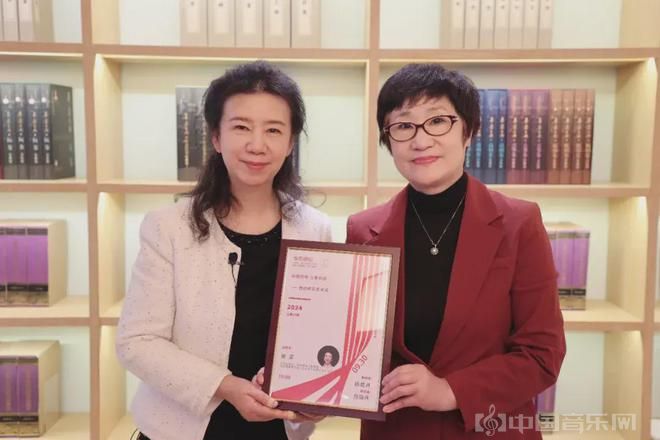
President Wu Yuxia presents a commemorative poster for Professor Zhou Wang's "Hua Le Lecture Hall"
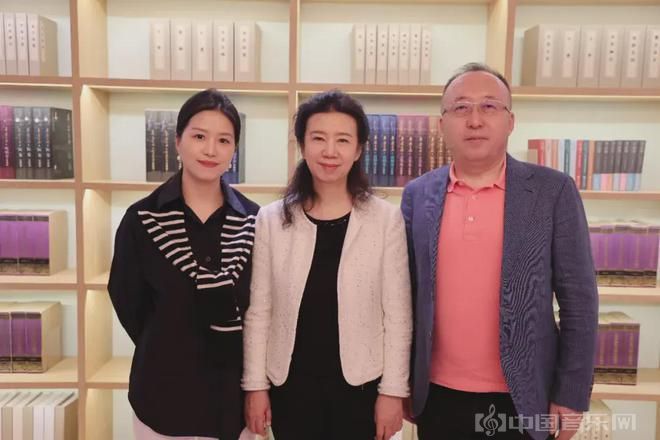
Professor Zhou Wang took a photo with Bai Xiaowei (researcher) and Yang Xinyue (listener)
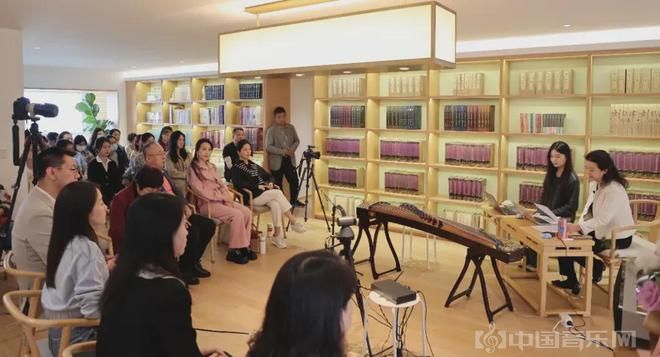
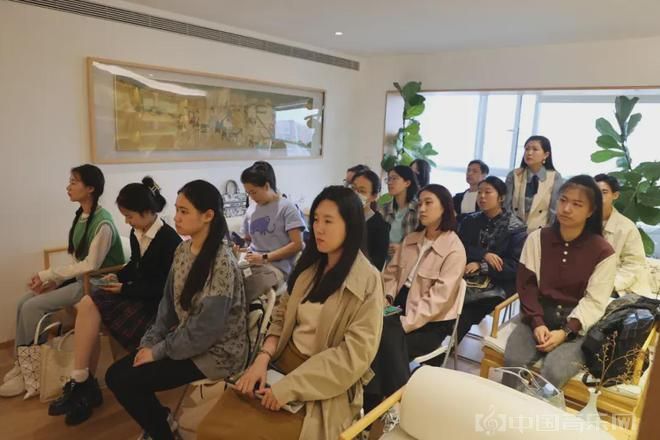
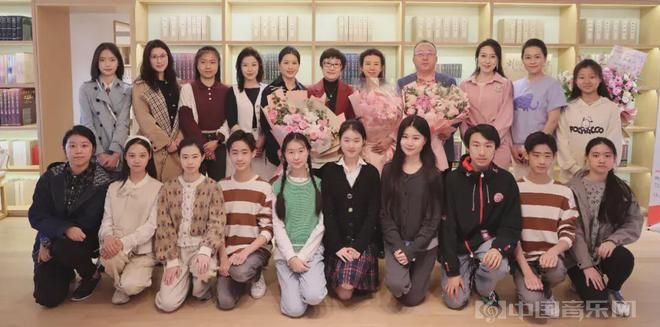
Lecture Hall Scene
Audience feedback:
Xu Xu, Guzheng teacher at the School of Music, Tianjin University of Media and Communications: In the sharing of my mentor Professor Zhou Wang, I deeply felt the important role of regional culture in shaping the traditional art of Guzheng. When we trace its origins and foundations, we also capture the inseparable relationship between the development of Guzheng art and Chinese traditional culture, especially regional culture, from different schools of Guzheng works. And this has also had an impact on the development of guzheng performance techniques in guzheng art. From the presentation of melody, the expression of rhythm, and the technical application of the performer's secondary creation, it can be seen that without understanding the cultural origins, the charm of guzheng art cannot be truly presented. Similarly, the art of guzheng is constantly flourishing, exploring new cultural foundations. As Professor Zhou often mentioned, some guzheng music works are full of the integration of ethnic music and traditional cultural symbols, which puts forward new propositions for the development of guzheng performance art, that is, how to use our mature techniques to present the profound meaning of new works. The relationship between inheritance and innovation is inherently dialectical and unified. While having sufficient technological reserves, it is even more important to start from the cultural origins of the work to improve the stage presentation. Of course, in the face of new works, we need to seriously study Professor Zhou's perspective on the art of guzheng music, and in innovation, give the traditional art of guzheng the opportunity to "grow old trees and new flowers". At the same time, we also need to continue exploring new development spaces for performing arts under the guidance of our predecessors? Where are the boundaries of the development of performing arts? I think these are all questions we should continue to think about. Thank you to my mentor for teaching, and thank you to the Huale Lecture Hall.
Shang Jingya, Guzheng performer at Beijing Peking Opera House: Thank you to the Chinese Ethnic Orchestra Society for offering us such a valuable opportunity to learn and exchange at the Chinese Music Lecture Hall. Today, I have the honor to listen to my mentor Professor Zhou Wang's lecture on the theme of "Inheriting Tradition and Innovating Ideas". The zither is a tool of benevolence and wisdom. Professor Zhou Wang examines the development of modern zither music from a traditional perspective in the context of Chinese culture. From the Qin zither in the Qin region to various local schools, she takes it as her responsibility to inherit the concept of "Qin zither returning to Qin". She showcases the exploration spirit of her mentor, Mr. Cao Zheng, and her father, Mr. Zhou Yanjia. Through wonderful performances and explanations, she has benefited us greatly. As a practitioner of traditional Chinese music and a literary worker, I am deeply inspired and inspired. With a sense of awe, I will move forward with the times, tell the story of China well, and spread the voice of China well.
Xiao Bing, a Guzheng teacher at Yimei Music: Hsinchu is higher than old bamboo branches, thanks to the support of old cadres. I used to listen to Professor Zhou's lectures as a student. And today, for the first time after starting work, I gained an additional role as a teacher and studied here, which gave me a deeper level of thinking. A towering tree must have its roots; The water of Huaishan must have its source. The culture of guzheng has a long and profound history. The history of the guzheng can be traced back to the Qin Dynasty, and Teacher Zhou is also committed to reviving and developing the guzheng. 'The guzheng belongs to Qin'! Our learning today is also based on the contributions, research, and publications of all the guzheng masters at that time. As mentioned by Teacher Zhou, the discussion on the compilation and selection of textbooks in Xi'an in 1961 included notes and the finalization of finger techniques. Fingering techniques, as the first lesson in learning Guzheng, have never been considered how they emerged. It is the wisdom of the older generation, and these contents are also based on the current 'transmission' and 'novelty'. All the guzheng gentlemen are silently cultivating. Playing cannot have only novelty without roots, only sound without emotion. People should stand on tradition, only then can their hearts be profound. Learn to appreciate excellent guzheng works, absorb the power of excellent traditional music, and integrate it into our performance. Music that can move people always needs the support of content. Teacher Zhou also mentioned that the guzheng is a tool of benevolence and wisdom - teaching requires being a good person. And Teacher Zhou has always practiced it this way, that professionalism and being a good person are inseparable. I can always feel the elegance, truth, goodness, and beauty in my teacher. Once bathed in the rain of apricot blossoms, I will cherish the kindness of my teacher for the rest of my life. I hope we can maintain our love for music and thirst for knowledge.
Han Tianya, a Guzheng major student from the Central Conservatory of Music in 2014, said: "Qin Zheng Returns to Qin" - Mr. Zhou Yanjia adapted the song "Embroidered Gold Plaque" in 1958, which opened up the Qin Zheng genre. Songs such as "Qin Sang Qu", "Jiang Nv Tears", "Desolation Qu", "Dao Qing", and "Xin Fan Luo Jiang Grudge" explain the importance of tradition as the foundation. Music expresses the inner feelings of characters, and performers immerse themselves in the "characters" to experience emotional changes and the expression of inner voice. The music played is more reasonable. The future development of the guzheng industry should be based on Chinese national culture, and it requires generations to inherit and look back, constantly innovate and explore with reverence.
Yang Qiaochu, a sophomore majoring in Guzheng at Central Conservatory of Music Affiliated Middle School: In this lecture, Professor Zhou introduced in detail the necessity of tradition and innovation, as well as the development path of Guzheng from tradition to innovation through four parts: "Inheriting tradition", "Innovative interests", "My path of exploring tradition", and "The problems between the development of modern Guzheng music and traditional inheritance". In terms of inheriting traditions, the teacher said that every genre is worth our serious study. The significance of traditional music for the development of Guzheng is to let us explore what is the music culture and essence of the Chinese nation, and how to adhere to traditional culture in the era of Internet developed big data in the exchange and mutual learning of Chinese and Western cultures. As professional performance learners, we must always take Chinese artistic civilization as the foundation of development, and uphold the original intention of looking back, inheriting, and respecting traditional music. In terms of interest innovation, the teacher also said that "tradition is alive", and the best inheritance for the development of Guzheng is innovation. We cannot stick to the old ways, but should have the ideas of exploration, innovation, and exploration. In terms of teaching, Teacher Zhou also shared that she often tells us that tradition must be immersed in the local customs, dialects, tones, and local operas of each school, in order to bring out the original flavor of each school. For example, in the works of Shaanxi Qin Zheng, there are many melodic musical language features. When playing, we not only need to listen and sing more, but also grasp the unique language tension, contrast between virtual and real, and emotional changes of the Shaanxi school. Teacher Zhou's lecture provides us with spiritual support from a higher perspective and has profound significance for the development of our younger generation of performers on the path of music. In Professor Zhou's lecture, I gained some insights: firstly, what belongs to a nation is what belongs to the world. We need to have stronger confidence in the development of our national culture, base ourselves on our local culture, use music to tell Chinese stories well, and continue cultural traditions. Secondly, we must strive for innovative ideas, keep up with the progress of the nation and the development of the times, and unleash our passion in the new journey. We should strive for the ultimate content and innovative forms, and fully utilize our knowledge to arm ourselves.
Zhang Yuxuan, a student from the Central Conservatory of Music: It is a great honor to listen to Professor Zhou Wang's lecture on "Inheriting Traditional Intent and Innovating - My Artistic View on Zizheng Music" at the China National Orchestra Art Development Research Center today. Professor Zhou Wang first introduced the history of Zizheng. As early as the Warring States period, Zizheng was widely popular in the Qin region. In the Tang Dynasty, Bai Juyi wrote a poem saying, "Running on a carriage to see peonies, riding on a horse to listen to Qin Zizheng." This shows the prosperity of that time. Ms. Zhou vividly talked about her learning experience. When she was young, she drew on the strengths of various schools and not only learned and inherited the essence of the Shaanxi zither school, but also studied other schools. Her father was also her mentor, Mr. Zhou Yanjia, and his rigorous and serious academic attitude had a profound impact on her. Mr. Zhou Yanjia's proposal of "Qin zither returning to Qin" is of great significance to the development of the zither today and has had a profound influence. We must uphold tradition and develop innovation based on Chinese civilization. After listening to this lecture, I benefited a lot and couldn't help but feel that it was the perseverance and exploration of senior teachers like Professor Zhou Wang that led to the artistic height and flourishing development of Guzheng today. As young students, we should inherit the excellent tradition of diligence and pragmatism from our predecessors, absorb the essence of authentic traditional music, integrate contemporary elements, create and perform zheng music works that showcase the style of the times and reflect the charm of Chinese culture, and make due contributions to the development of zheng art.
Important Preview
The 29th lecture of the "Hua Le Lecture" will be held on December 9, 2024 at the Art Development Research Center of the Chinese Ethnic Orchestra Society. Professor Shen Cheng, Vice President of the Chinese Ethnic Orchestra Society, Dean of the School of Arts at Huazhong University of Science and Technology, a banhu performer, educator, and China Conservatory of Music, will bring us "The Power of Tradition and Inheritance - My View on Performance Art Practice". Please stay tuned.
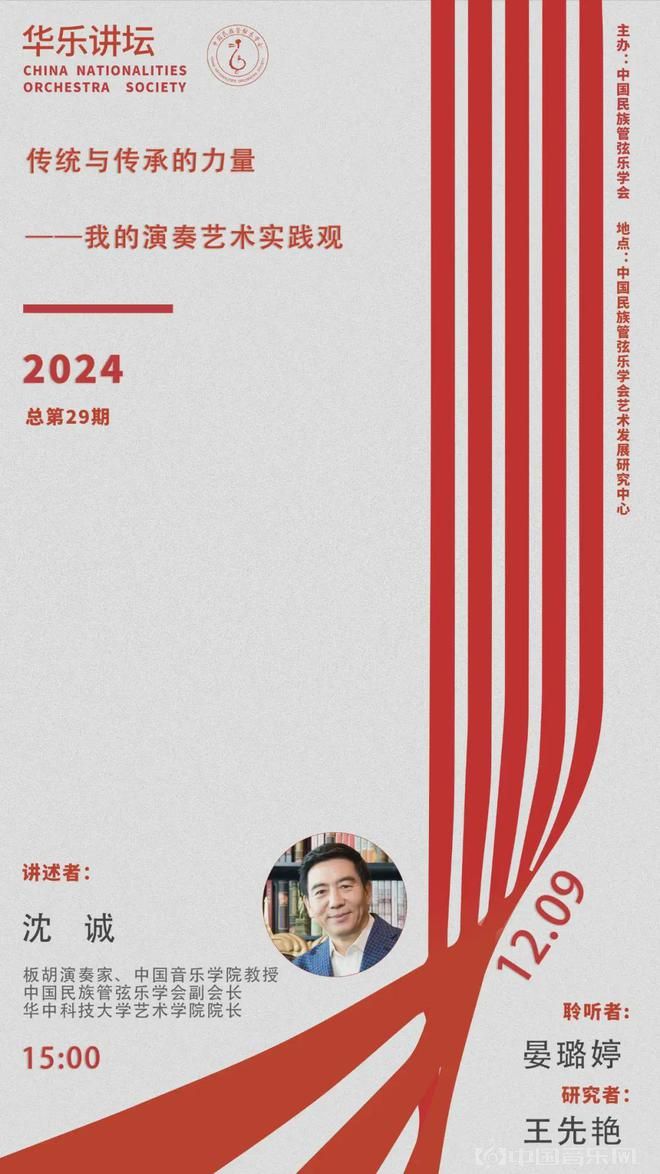
A cup of clear tea, a piece of music, nourishes the soul and cultivates sentiment. The 'Home of Folk Musicians' will always accompany you! We hope that every time we carefully prepare for you, we will gain something from it.
Photography by Tian Long
(Source: Chinese Folk Music, China Music Network)
-
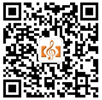 微信公众号中国音乐网官方微信公众号
微信公众号中国音乐网官方微信公众号 -
 官方邮箱chnmusic@qq.com
官方邮箱chnmusic@qq.com -
 官方微博中国音乐网官方微博
官方微博中国音乐网官方微博 -
 官方微信官方微信:chnmusiccn
官方微信官方微信:chnmusiccn -
 联系客服客服QQ: 2296549528
联系客服客服QQ: 2296549528

